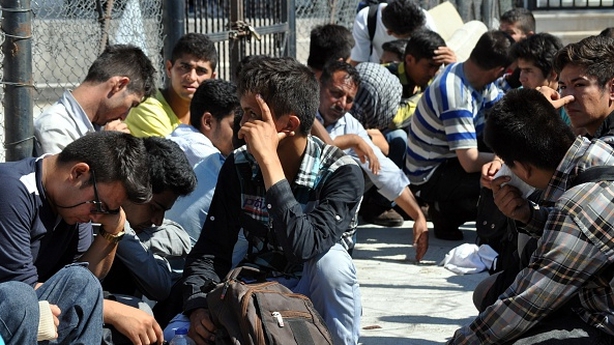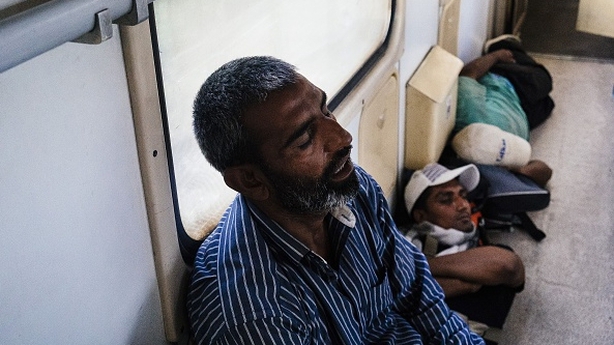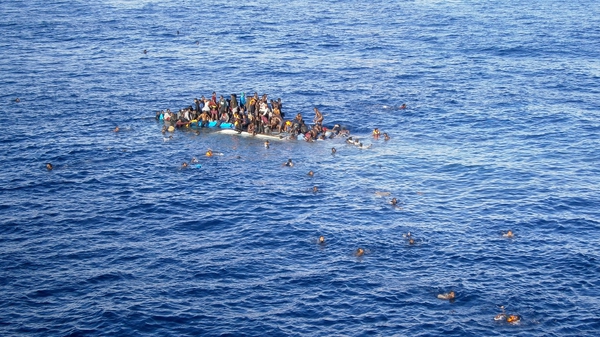Minister for Justice Frances Fitzgerald has said the first of the 600 migrants from Syria and Eritrea whom Ireland has pledged to accept will be arriving from September onwards.
She said the new arrivals will be fingerprinted and assessed in Italy and Greece before eligibility is decided.
Ms Fitzgerald confirmed the 600 would be classed originally as asylum seekers and assessed in the normal way, but said they could be fast-tracked as they will be pre-selected.
She said Ireland does get a say on who it takes in and she said if they have connections or family already in the country that would be taken into account.
Ms Fitzgerald said the expectation is that a "very high-proportion would get refugee status", and quickly, because of the persecution they are fleeing in their country of origin.
At its height, Ireland dealt with up to 12,000 asylum seekers a year, she said.
In Brussels yesterday, Ireland agreed to accept up to 600 additional migrants over the next two years, as part of the EU relocation plan to deal with the migration crisis in the Mediterranean.
The Cabinet signed off in principle on the relocation scheme last week, ahead of yesterday's meeting of EU justice ministers in Brussels.
As the migrants arrive, they are expected to be processed through the Direct Provision system.
Ms Fitzgerald accepted that the system has been criticised and said that the Government established a task force to help deal with some of the accommodation needs of those in Direct Provision and implement recommendations in a recent report.


Following the deaths of 700 people on a fishing boat heading for Italy from Libya in April, EU leaders called at a summit in June for agreement on the relocation by the end of July.
Yesterday, ministers in Brussels agreed to respect the summit's indications by committing to the relocation of 40,000 migrants forecast to arrive in Greece and Italy over the next two years.
However, the actual numbers for each member state will be defined in another meeting by December.
Although ministers only agreed to resettle 32,000 out of 40,000 asylum seekers as a first step, Ms Fitzgerald said the 40,000 figure would be reached.
She said the scale of the problem was "enormous" but said EU ministers had a "realistic grasp" on it.
150,000 migrants fleeing wars and poverty have reached Europe by sea so far in 2015, the International Organization for Migration has said.
Most of them have been arriving in Italy and Greece – two countries already hit by a long economic slump. Hundreds have drowned on the journey.
A deal is critical as the EU also needs to turn its attention to the growing numbers of asylum seekers crossing the Balkan peninsula to reach central Europe.
Hungary has received the EU's highest number of asylum applications in the first quarter of 2015, according to European Union data, and has started building a security fence along its border with Serbia to keep illegal migrants out.
"We are almost there," the EU migration commissioner, Dimitris Avramopoulos, told a news conference at the end of the extraordinary meeting. "I am disappointed, but it was an important step forward," he said.
The first asylum seekers may be relocated before a full deal is reached, "starting from October", Luxembourg's minister in charge of migration, Jean Asselborn, said.

